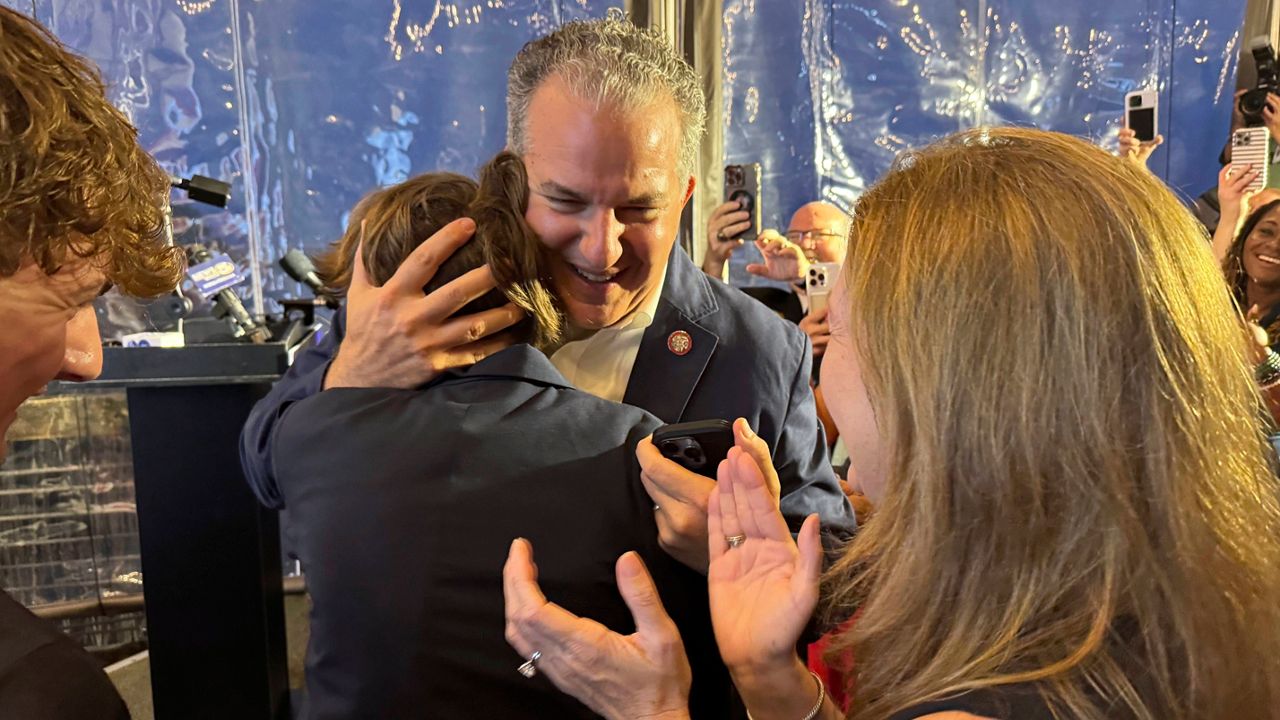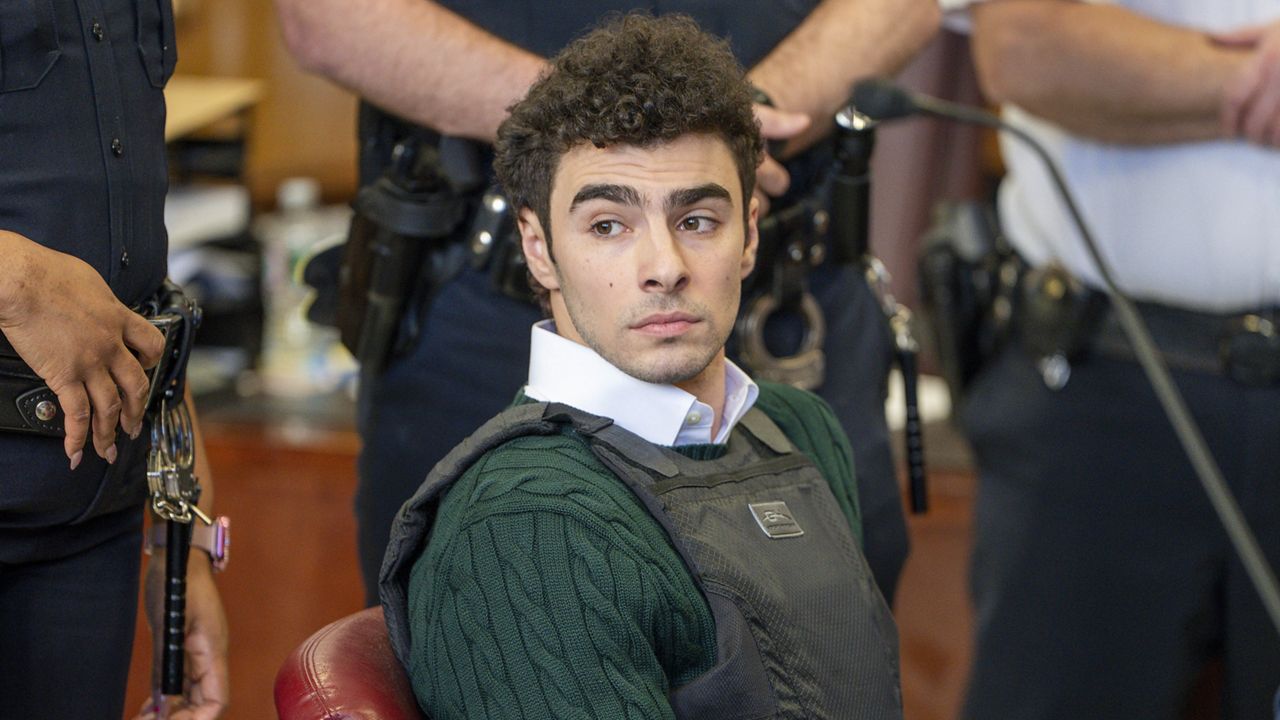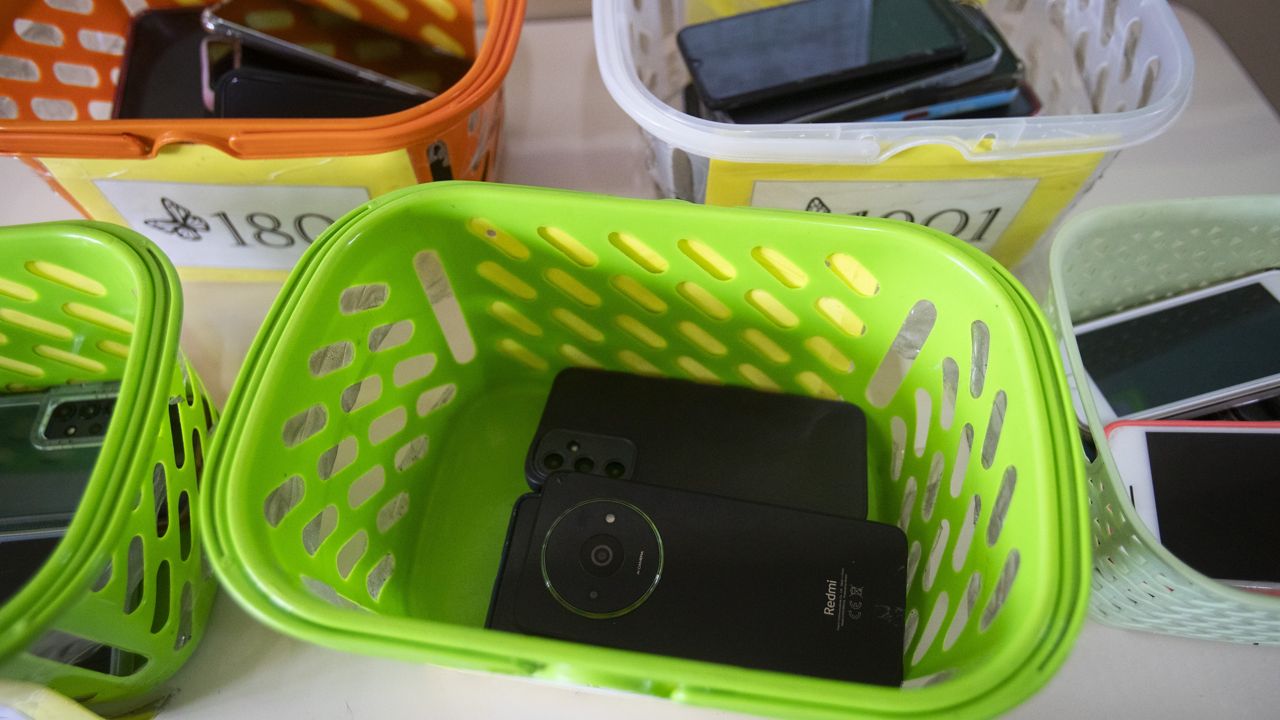The Florida Dept. of Corrections (FDC) has proposed a rule change that would cut in half the time that a family member could visit an inmate in state prisons.
What You Need To Know
- The FDC says that they will establish an on-site visitation schedule designation for each institution based upon criteria that promote “the safety and security of the institution, inmates, staff, and the public"
- The Department of Corrections proposed a similar change in visitation hours in 2018, but ultimately opted not to go ahead with it
- Former Corrections Secretary Mark Inch testified in 2021 that Florida’s prison system was near collapse
Currently the department allows weekly visitation hours between 9:00 a.m. and 3:00 p.m. on each Saturday and Sunday, as well as on major holidays. The new proposal could allow visitations to take place every other weekend.
“It’s a great comfort for me just to be able to go in there and eat with him and have a meal with him,” says Michelle Rothwell, whose son, Danny Knight, is currently incarcerated at Liberty Correctional Institution in the Panhandle. “If they take that away, it’s not only going to affect our lives on the outside, but it’s really going to affect the mental stability of the person who are incarcerated.”
The lack of adequate staffing is one factor in why the department says they may need to cut back visitation hours. In documents released last week, the FDC says that they will be looking at “whether institutional staffing levels are sufficient to adequately supervise the visitation.”
Rothwell says she makes the trek up to the Panhandle about once a month to see Danny, 31, who was charged an adult at the age of 17 and sentenced to 40 years in prison on drug trafficking and armed robbery charges. She says that under the state’s updated sentencing guidelines he would now only have to serve a seven-year sentence if he committed the same crimes today, but the state doesn’t retroactively release inmates whose original charges now fall under such guidelines.
In dealing with her son’s incarceration, the St. Petersburg-based realtor says she’s unwittingly become a major prison reform advocate (she belongs to FAMM – Families Against Mandatory Minimums).
“Don’t judge, because it could happen to you at any moment,” she says. “My son never planned on going to prison. He made a bad choice and there he is. He was a kid.”
Prisoner rights advocates also oppose the proposal.
“Visitation is what brings people together,” says Laurette Philipsen, communications director with Florida Cares, an advocacy group for prisoner rights. “It keeps you bonded. It keeps the family unit together.”
Philipsen was incarcerated for more than eight years in Florida prisons for grand theft. She says the proposed rule changes also include restricting felons to only be allowed to visit family members in state prison, and not friends. Currently the only limitations for felons when it comes to visiting state prisons is that they cannot visit an inmate at an institution that they were housed with (that ban ends after five years).
“I’ve been on a few people’s visitation list in the last three years I’ve been approved,” Philipsen says. “And they’ve had no issues with me. So why suddenly am I a problem that I am not going to be able to visit somebody inside who I’m not related to?”
Rothwell says that it’s important for the incarcerated to maintain bonds with friends and family members.
“One day these people are going to be back on the streets, and they’re going to want to be with their family, and we don’t want to have our family not know each other after 40 years,” she says.
In their proposal, the FDC lays a set of criteria that it will evaluate during this process:
(a) Whether institutional staffing levels are sufficient to adequately supervise the visitation, taking into consideration the physical area where visits will take place, the average number of visitors at an institution during the previous six months, and the number of inmates receiving visitors during the previous six months.
(b) The number of times when the number of visitors reached or exceeded 75% occupancy of the institution’s visiting park maximum capacity during the previous six months.
(c) The number of institutional visitation cancellations during the previous six months. Four or more cancellations will support a modified visitation schedule.
(d) The number of reported disturbances, disruptions, or physical or verbal altercations during visitation between or among inmates, staff, or visitors during the previous six months. Two or more reported incidents will support a modified visitation schedule.
(e) The number of reported incidents of contraband introduction by visitors resulting in the interruption, cancellation, or modification of routine facility operations during the previous six months. Four or more reported incidents will support a modified visitation schedule.
(f) The number of other reported safety incidents not covered by paragraphs (1)(a)—(e) occurring immediately prior to, during, or following visitation involving inmates, staff, or the public during the previous six months.
“As outlined in the proposed rule change, modified visitation and visitation suspensions are clearly defined and will only be considered when absolutely necessary, and only after all criteria is met. In the event consideration of modified visitation occurs, the proposed rule also includes an extensive and stringent review process by both regional and statewide administrators,” FDC spokesperson Molly Best said in a statement.









